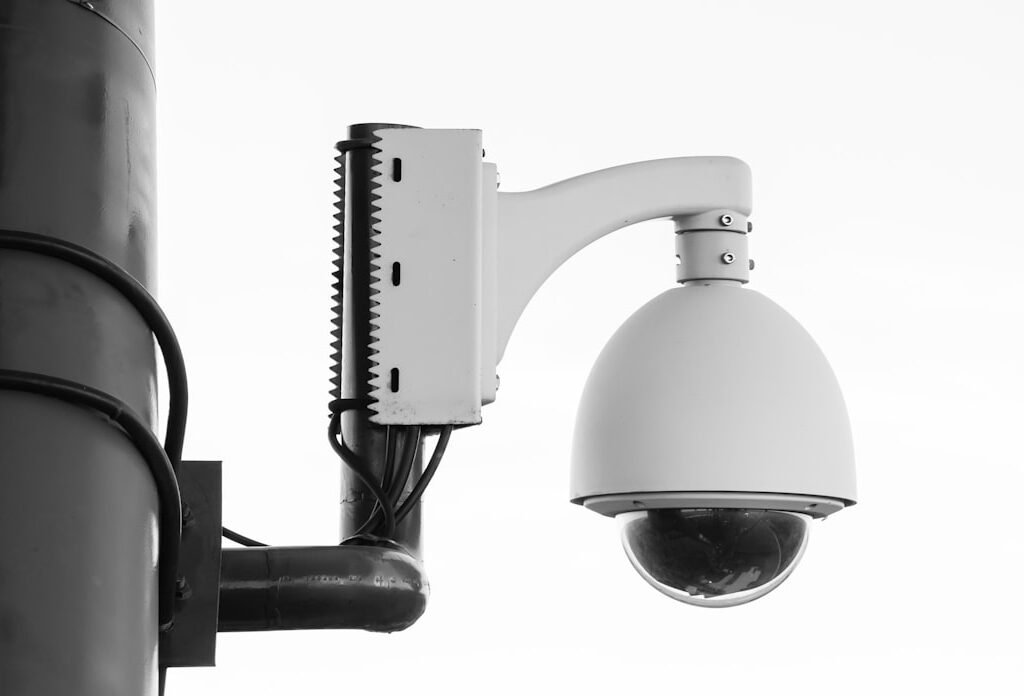Warehouse security is a big deal for businesses that store goods. A warehouse is like a treasure chest for products, and keeping it safe is crucial. If a warehouse isn’t secure, it can lead to theft, damage, or loss of valuable items.
This can hurt a business’s bottom line and reputation. So, understanding how to protect these spaces is essential for anyone involved in logistics or supply chain management. In today’s world, threats to warehouses are not just from outside intruders.
Internal issues, like employee theft or accidents, can also pose risks.
That’s why a solid security plan is necessary.
It’s not just about locking the doors at night; it’s about creating a safe environment for everyone who works there.
This article will explore various ways to enhance warehouse security, ensuring that both the goods and the people are protected.
Key Takeaways
- Warehouse security is crucial for protecting assets and ensuring the safety of employees.
- Implementing surveillance systems can help monitor and record activities within the warehouse.
- Access control measures such as key cards and biometric systems can restrict entry to authorized personnel only.
- Utilizing inventory management software can help track and manage inventory, reducing the risk of theft and loss.
- Training and educating employees on security protocols and procedures is essential for maintaining a secure warehouse environment.
Implementing Surveillance Systems
One of the first steps in securing a warehouse is setting up surveillance systems. Cameras can be placed in key areas to monitor activities around the clock. This means that if something goes wrong, there’s a record of what happened.
It’s like having a watchful eye that never sleeps. Modern cameras can even send alerts if they detect unusual movements, allowing for quick responses to potential threats. Besides just watching, surveillance systems can also deter crime.
When people see cameras, they are less likely to try anything shady. It’s a simple but effective way to keep unwanted visitors away. Plus, with advancements in technology, many surveillance systems can be accessed remotely.
This means managers can keep an eye on things from anywhere, whether they’re at home or on vacation.
Access Control Measures

Access control is another important part of warehouse security. This means controlling who can enter and exit the building. Simple measures like keycards or biometric scanners can help ensure that only authorized personnel have access to certain areas.
This is especially important in places where valuable items are stored or where sensitive information is handled. Having strict access control also helps in tracking who is in the warehouse at any given time. If something goes missing, it’s easier to figure out who was there when it happened.
Additionally, regular reviews of access permissions can help keep things secure. If someone leaves the company or changes roles, their access should be updated immediately to prevent any potential issues.
Utilizing Inventory Management Software
Inventory management software plays a vital role in warehouse security as well. This software helps keep track of all items stored in the warehouse. By knowing exactly what’s in stock and where it is located, businesses can quickly identify if something goes missing.
It’s like having a digital inventory list that updates in real-time. Moreover, this software can help prevent overstocking or understocking items, which can lead to waste or shortages. When everything is organized and accounted for, it reduces the chances of theft or loss.
Many inventory management systems also come with security features that alert managers if there are discrepancies in stock levels, making it easier to catch problems early.
Training and Educating Employees
Employees are often the first line of defense when it comes to warehouse security. That’s why training and educating them about security protocols is crucial. Workers should know how to recognize suspicious behavior and what steps to take if they see something unusual.
Regular training sessions can help keep security top of mind for everyone. Additionally, fostering a culture of security awareness can make a big difference. When employees feel responsible for the safety of their workplace, they are more likely to take precautions seriously.
Encouraging open communication about security concerns can also help identify potential issues before they become bigger problems.
Securing Perimeter and Entry Points

The perimeter of a warehouse is its first line of defense against intruders. Securing this area is essential for overall safety. Fencing, gates, and proper lighting can deter unwanted visitors from even trying to enter the property.
A well-lit area makes it harder for someone to sneak around unnoticed. Entry points should also be monitored closely. This includes doors and loading docks where goods come in and out.
Installing strong locks and using access control measures at these points can help keep unauthorized individuals out. Regular checks on these areas ensure that everything remains secure and functional.
Conducting Regular Security Audits
Regular security audits are an important part of maintaining warehouse safety. These audits involve reviewing all security measures in place and identifying any weaknesses or areas for improvement.
It’s like giving the security system a health check-up to ensure everything is working as it should.
During an audit, businesses can assess their surveillance systems, access controls, and employee training programs. This helps ensure that all aspects of security are up to date and effective. By conducting these audits regularly, companies can stay ahead of potential threats and make necessary adjustments before issues arise.
Integrating Smart Security Technology
Smart security technology is changing the way warehouses operate. This technology includes things like smart cameras, motion sensors, and alarm systems that can be controlled remotely via smartphones or computers. These tools provide real-time updates and alerts, making it easier for managers to respond quickly to any incidents.
Integrating smart technology not only enhances security but also improves efficiency. For example, smart sensors can monitor temperature and humidity levels for sensitive products, ensuring they are stored correctly. This added layer of protection helps prevent damage to goods while also keeping the warehouse secure from potential threats.
In conclusion, warehouse security is essential for protecting valuable goods and ensuring a safe working environment for employees. By implementing surveillance systems, access control measures, and inventory management software, businesses can create a robust security plan. Training employees and securing entry points further enhance safety, while regular audits help identify areas for improvement.
Finally, integrating smart technology offers modern solutions that keep warehouses secure and efficient in today’s fast-paced world.
FAQs
What is smart security for warehouses?
Smart security for warehouses refers to the use of advanced technology such as surveillance cameras, access control systems, and sensors to monitor and protect the warehouse premises from theft and unauthorized access.
How can smart security systems help reduce theft in warehouses?
Smart security systems can help reduce theft in warehouses by providing real-time monitoring, recording of activities, and alerts for any suspicious behavior. This can deter potential thieves and provide evidence for investigations if theft does occur.
What are some examples of smart security features for warehouses?
Examples of smart security features for warehouses include high-definition surveillance cameras, motion sensors, biometric access control systems, and alarm systems that are connected to a central monitoring station.
How can warehouses implement smart security systems?
Warehouses can implement smart security systems by working with security experts to assess their specific needs and install the appropriate technology. This may involve integrating different security components and setting up a central monitoring system.
What are the benefits of using smart security in warehouses?
The benefits of using smart security in warehouses include reduced theft and loss, improved safety for employees, better monitoring of inventory and assets, and the ability to remotely access and control security systems.





